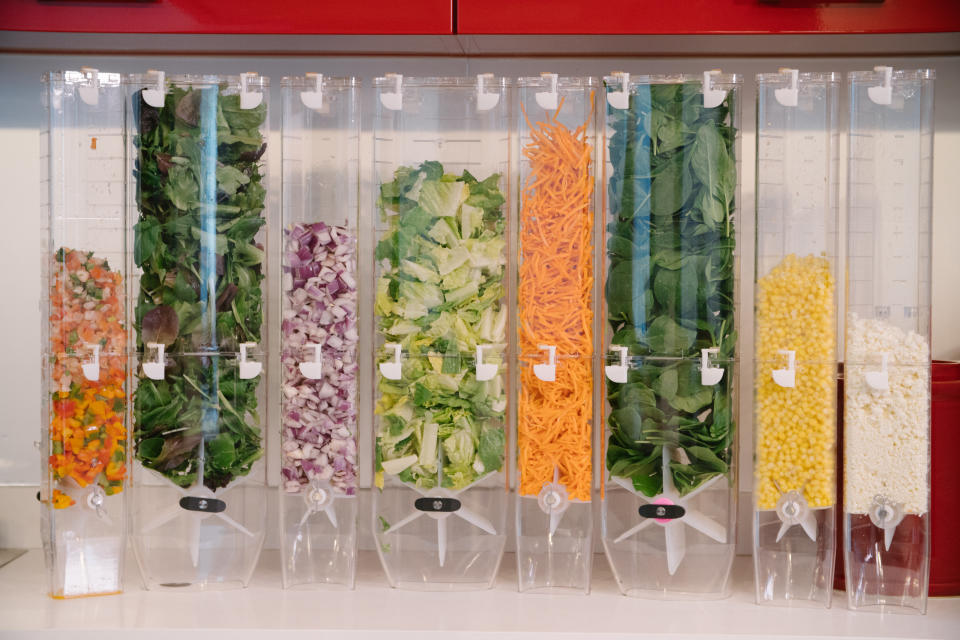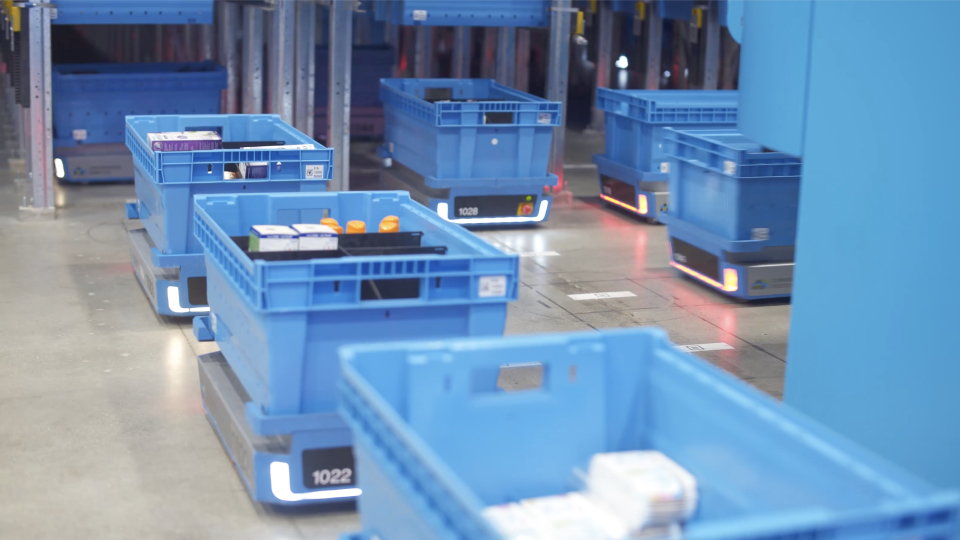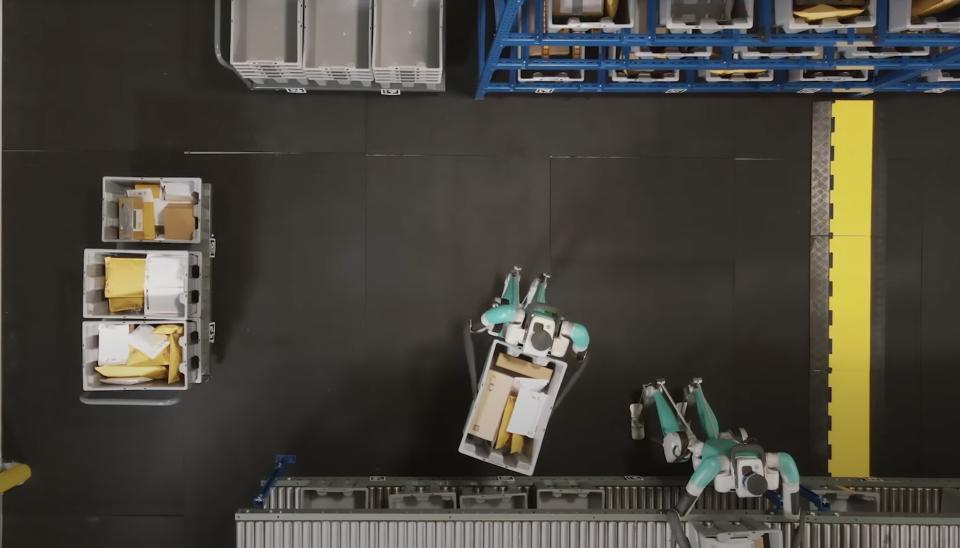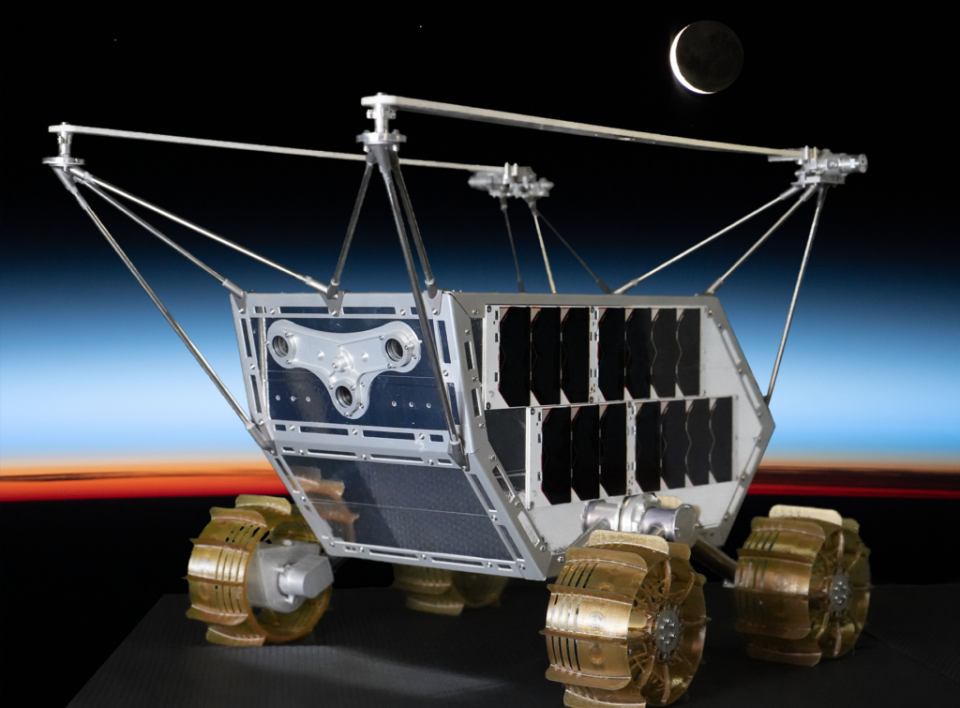No one said this was going to be easy
We’re exactly a week out from TC Sessions: Robotics 2022. I’ve been sitting in on prep calls for the past month, and I feel confident in saying this is going to be the best and widest-ranging single-day robotics event. I’ve been helping plan events for various outlets for close to 15 years at this point, and I also feel comfortable saying this is the strongest lineup I’ve been involved in putting together, full-stop.
Our last robotics event happened at -- arguably -- the strangest possible time. The show came together well, but March 2020 wasn’t an ideal time to hold an event -- that’s only become increasingly apparent in hindsight. It was a strange and uncertain time, and we made sure to have plenty of Purell stations on hand, because it seemed like the best defense at the time.
I had a strange, full circle moment last month at our Climate event. I’ve been doing the stage interview thing for a long time, and there are always butterflies before the adrenaline kicks in and carries you the rest of the way. But standing onstage at UC Berkeley’s beautiful Zellerbach Hall was surreal.

It was our first climate show, first time back at Berkeley since Robotics 2020 and my first time onstage since then, as well. The thing people tend to gloss over when they tell you something is like “riding a bike” is those first few seconds or minutes before your brain and muscle memory kick into gear can be harrowing. By comparison, returning to Robotics next week feels more like seeing an old friend for the first time in two years. Sure we emailed, texted, Zoomed on occasion and wished a Happy Birthday on each others’ Facebook walls, but it wasn’t the same.
I started thinking about the next robotics event the moment I got off stage in March 2020, but, you know, the best laid plans and all that. The upshot of skipping an event for a year due to the pandemic is that you get an extra year of planning. COVID, of course, hasn’t gone away, and as excited as I was about the prospect of returning the show to Boston for the first time since the inaugural event, there’s something to be said for the scope that going all online affords you. And offering the entire thing up for free doesn’t hurt, either.
To help mark the event, we’ve planned a bunch of programming in the lead up, as well. I filled in for Matt on TechCrunch Live this week, as he’s currently teaching a group of campers the magic of the taut-line hitches. It was a great conversation with Attabotics CEO Scott Gravelle and Forerunner Ventures’ Eurie Kim, an early investor in the project. An hour later, I had a great conversation with Ohio State University’s Ayanna Howard and littleBits founder Ayah Bdeir on Twitter Spaces. It’s okay if you missed either one live -- they’ll both be online soon.
I’ll also be appearing on the Equity Podcast on Saturday to talk some broader robotics industry investment trends with Alex. And on Monday at 3PM ET, we’ve got another Twitter Spaces with iRobot CEO Colin Angle. I honestly exhausted myself typing those last two paragraphs. The plan is to make you completely sick of me by the end of next week and take the next year off in some undisclosed location.

Anyway, do me a solid and register for the free event right here, so the events team stops bugging me. Where else are you going to see Dean Kamen, the U.S. Secretary of Labor, executives from Amazon, Boston Dynamics, Locus Robotics, Zebra, Agility, Sarcos, littleBits, Veo, Robust.AI, Berkshire Grey and MassRobotics; VCs from DCVC, Playground Global, FoundersX Ventures and The Engine; and leading researchers from MIT, CMU, UC Berkeley and Ohio State University in one place?
All right, now that all of the hype is out of the way, it’s time to bring things back down to Earth. I’m as guilty of getting caught up in the investment whirlwind of the past two years as anyone, but it’s important not to lose sight of the fact that launching a robotics startup is an absolutely bonkers thing to do. It’s a long, hard road that requires a lot of capital, a long runway and bears very few of the early fruits you get from, say, a successful app.
It was recently pointed out to me how incredibly few robotics companies have gone the traditional IPO route. Even during the recent SPAC madness, robotics firms were few and far between. And among those who went that way, the results have been, at best, mixed. For most companies, it seems like an acquisition is best-case scenario, but even those can go south fast.

Chowbotics' salad-making robot, Sally, has 20 different canisters to dispense ingredients. Image Credits: Chowbotics /(opens in a new window)under a license.
Case in point: Chowbotics. Let’s be real, this one felt weird from the start. It was an uneasy marriage resulting from DoorDash’s pandemic highs, as the delivery service was looking to diversify. Salad robots are certainly a way to do that. Maybe DoorDash’s own revenue beginning to regress to the mean made them take a second look. Maybe food kiosks in public places don’t hold the same appeal as the pandemic continues. Maybe we just Occam’s razor it and say it was just a bad fit.
Chowbotics’ sudden closure 17 months after acquisition is a bummer, regardless of the reasoning. Here’s what DoorDash told TechCrunch:
We have decided to cease operation of the Chowbotics business, effective August 31st, 2022. At DoorDash, we create an environment to build new products and set high standards to determine when to scale, continue, or cut back investments. We’re always looking for new ways to serve our merchants, exceed consumers’ increasingly higher expectations, and complement our logistics infrastructure.

Fabric's automated fulfillment center. Image Credits: Fabric
Fabric, meanwhile, recently told its 300-person staff that it’s laying off 40% of them. Given how hot delivery and logistics have been, it’s a bit surprising, perhaps, but there’s also a tremendous amount of competition. Along with the layoffs, the well-funded New York startup also says it’s moving from “platform to service” as an overall major shift in focus.
Last week, The South China Morning Post highlighted some struggles in that country’s generally white-hot robotics startup market. “We’ve decided to cut some operations and businesses of our company to survive,” Pudu CEO Felix Zhang Tao said in a leaked letter. “It’s a difficult decision.” He went on to add that layoffs are designed to help the company turn a profit and “survive the long winter.”

Image Credits: Agility Robotics
In happier news, Philadelphia-based Fort announced a $25 million Series B for its robotic safety software. The round, led by Tiger Global, brings its total raise to $41.5. Fort counts Agility, Hexagon and Moog (the robot company, not the synth one) among its clients. The company cited ongoing labor shortages as a primary drive for the raise. Says founder/CEO Samuel Reeves:
Smart machines are transforming the world, but they come with unprecedented safety and security risks. a massive need for these machines to communicate in a trustworthy way, and it’s something that’s yet to be addressed in the industry. This investment will allow us to scale up to meet the demands of the next generation of smart machines.

Image Credits: Xpeng Robotics
Meanwhile, Xpeng Robotics, which makes that bizarre ridable robot unicorn, managed to raise a $100 million Series A at a time when venture investment has begun to slow in its native China. Here’s CEO He Xiaopeng:
I also believe that in the future, manufacturers of smart cars will also be manufacturers of smart robots… As part of our mission as a technology innovator and explorer, we will continue to provide support to Xpeng Robotics.

Lunar Outpost lunar moon rover. Image Credits: Lunar Outpost
And quickly, a pair of space robot stories: Aria profiles Lunar Outpost, which is currently working to build a lunar terrain vehicle for NASA, and Japanese startup, Gitai, which is currently working on building autonomous space robots.

Image Credits: Bryce Durbin/TechCrunch
Float on over and subscribe to Actuator.


